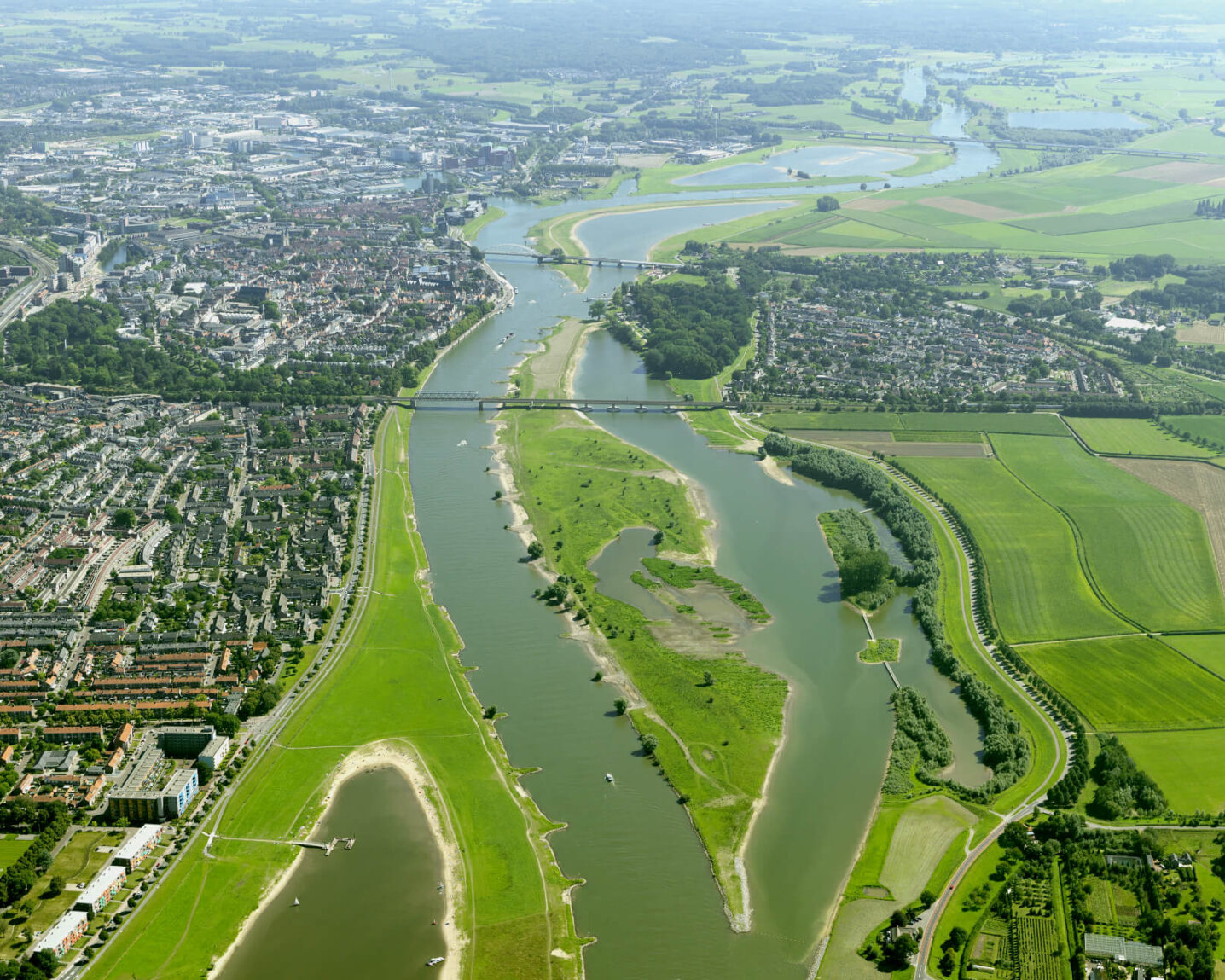Investing in nature-based solutions in water management pays off
This project explores the costs and benefits of nature-based solutions (NbS) used in the Room for the River initiative in Deventer. Commissioned by Collectief Natuurinclusief, Rebel conducted a detailed analysis to measure the economic and ecological value of these measures.

The challenge
The Dutch water sector faces serious challenges from climate change, including water safety, quality, and freshwater availability. Traditional engineering solutions are often expensive and not always sustainable. Nature-based solutions (NbS) can provide a more affordable and environmentally friendly alternative, but their financial and social value is still not well understood.
The approach
In 2015, a Room for the River project was implemented in the IJssel floodplain near Deventer. The goal was to give the river more space during high water levels while also creating a floodplain park that supports nature and recreation. This project serves as a strong example of how nature-based solutions (NbS) can be applied in water management.
As part of the Deventer project, NbS measures included constructing side channels to improve water drainage, developing nature-friendly riverbanks and natural water buffers, and enhancing the area’s recreational and ecological value. An analysis was conducted to assess both the costs and benefits of these measures—covering construction, maintenance, and the financial and social returns across different sectors.
To evaluate the effectiveness of NbS, their costs and benefits were compared to a traditional engineering solution: dike raising. This comparison offered insight into the relative advantages and trade-offs of each approach. While the upfront costs of NbS were higher than those of the grey infrastructure option, NbS provided broader benefits—such as improved biodiversity, increased recreational opportunities, and higher property values—making them a compelling alternative to conventional measures.
The findings from this project offer valuable insights for future water management decisions. They highlight the importance of considering not only the costs but also the wider societal benefits of nature-based solutions (NbS). These insights can help governments, water boards, and private stakeholders make informed choices and embed NbS more firmly into policy and funding frameworks.
Adopting this approach in future projects will pave the way for more sustainable and climate-resilient water solutions at a larger scale—supporting not just water management, but also nature conservation and the creation of livable environments. At the same time, the project underscores the need for continued research. By analyzing more cases, we can build a deeper understanding of the value of water systems—on par with the knowledge we currently have about land-based ecosystems.
Impact
Nature-based solutions enhance water safety, biodiversity, and quality of life. Understanding costs and benefits supports policy and financing of sustainable water projects.


